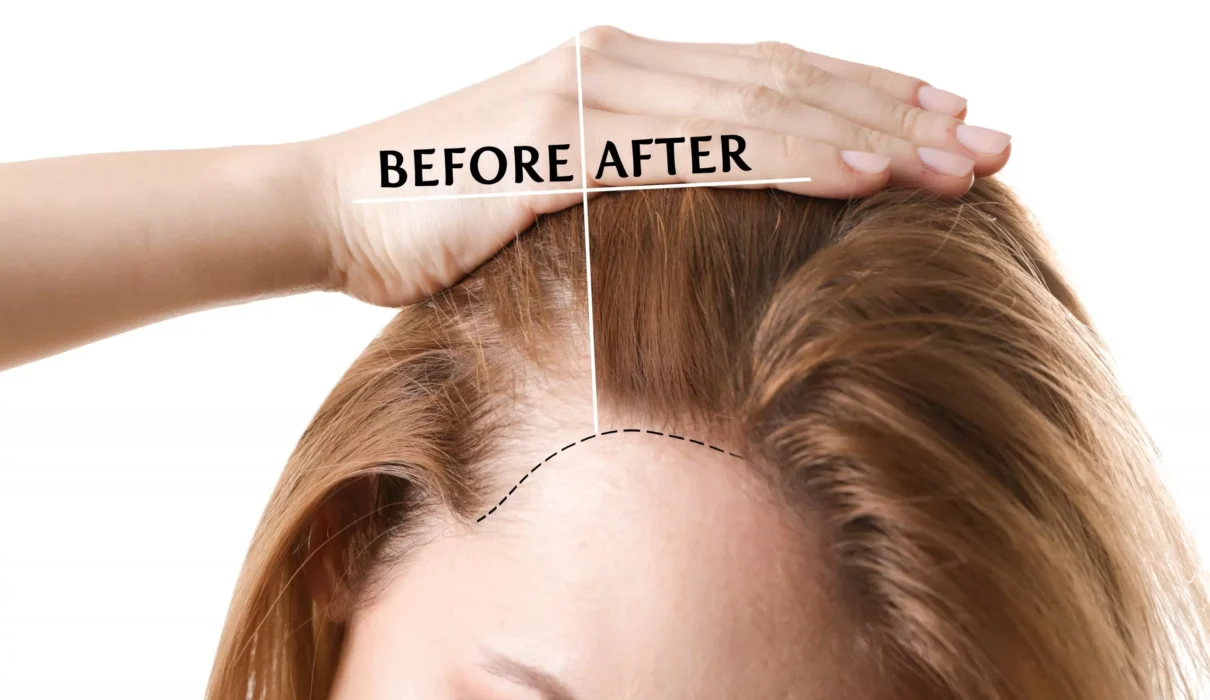
Hair loss, also known as alopecia, can have several causes, including:
Genetics: The most common cause of hair loss is a hereditary condition called male or female pattern baldness (androgenetic alopecia). It is believed to be influenced by genetic factors and hormonal changes and can lead to gradual hair thinning and eventual hair loss.
Hormonal changes: Hormonal imbalances due to conditions like pregnancy, childbirth, menopause, or thyroid disorders can contribute to hair loss. Hormonal changes can disrupt the normal hair growth cycle, leading to excessive shedding or thinning of the hair.

Medical conditions and treatments: Certain medical conditions and treatments can cause hair loss. These include:
Alopecia areata: An autoimmune condition that causes patchy hair loss on the scalp and other areas of the body.

Telogen effluvium: A temporary condition triggered by physical or emotional stress, illness, surgery, or significant weight loss, leading to a high percentage of hair follicles entering the resting phase and subsequent shedding.
Trichotillomania: A psychological disorder characterized by the compulsive urge to pull out one’s hair, resulting in hair loss.
Scalp infections: Fungal or bacterial infections of the scalp, such as ringworm, can cause hair loss.
Medical treatments: Chemotherapy, radiation therapy, and certain medications used to treat conditions like cancer, arthritis, depression, or high blood pressure can cause temporary or permanent hair loss.
Nutritional deficiencies: Inadequate intake of essential nutrients, such as iron, zinc, biotin, and vitamin D, can affect hair health and lead to hair loss.

Stress: Physical or emotional stress can disrupt the hair growth cycle, leading to excessive shedding and temporary hair loss.
Hairstyling practices: Excessive use of heat styling tools, tight hairstyles (like ponytails or braids), and harsh chemical treatments can damage the hair and contribute to hair breakage and loss.
Aging: As individuals age, hair follicles can shrink, leading to thinner and more fragile hair. This natural aging process can result in hair loss or thinning.
It’s important to note that some degree of hair shedding is normal, as hair goes through cycles of growth, rest, and shedding. However, if you notice significant hair loss, sudden or unusual hair thinning, or if hair loss is affecting your self-esteem or causing concern, it is advisable to consult a healthcare professional or dermatologist for proper diagnosis and guidance on treatment options.


